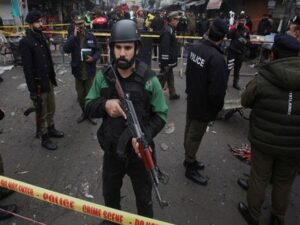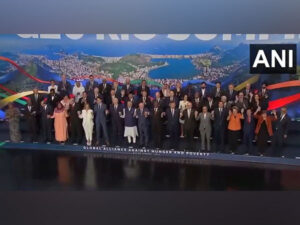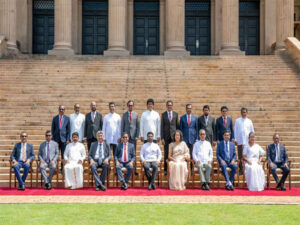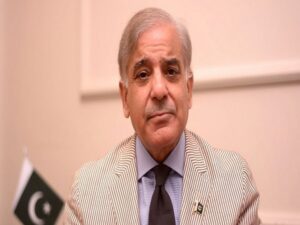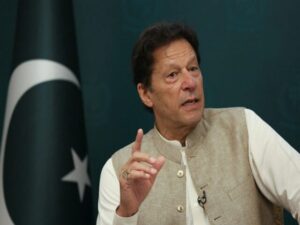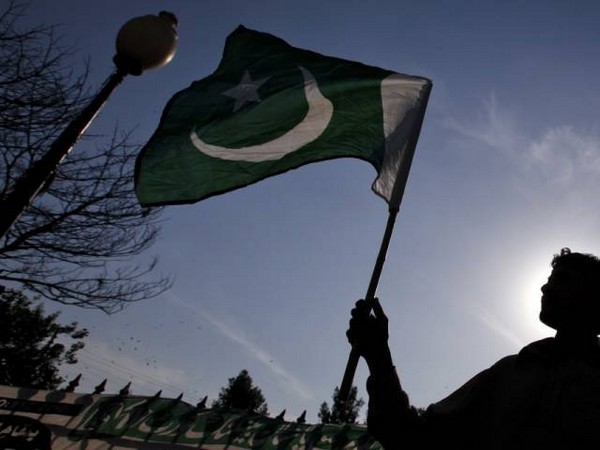
Islamabad [Pakistan], March 5 (ANI): The State Bank of Pakistan has increased the interest rate by a massive 300 basis points (bps) taking it to a record-high level of 20 per cent, in accordance with the conditions set by the International Monetary Fund, The News International reported.
The Monetary Policy Committee (MPC) which was constituted as a statutory committee under the State Bank of Pakistan Act has taken the decision to raise the policy rate to its highest level since October 1996 in an attempt to “anchor inflation expectations as it is critical and warrants a strong policy response,” as per the news report.
Pakistan‘s Central Bank increased the interest rate by 300 bps taking the total increase to 1,050 bs since January 2022 to counter rising inflation. The Monetary Policy Committee‘s meeting was due to take place on March 16, The News International reported. However, the MPC decided to “prepone” it to tackle the emerging risks to the economy including a record inflation number, which reached at a nearly 50-year high of 31.5 per cent in February.
SBP in a tweet on March 2 wrote, “The Monetary Policy Committee decided to raise the policy rate by 300 basis points to 20 percent in its meeting today.” In another tweet, SBP wrote, “This decision reflects deterioration in inflation outlook & its expectations amid recent external and fiscal adjustments. MPC believes this outlook warrants a strong policy response to anchor inflation expectations around the medium-term target of 5-7 per cent.”
It further stated, “MPC noted that reduction in CAD is important but requires concerted efforts to improve the external situation. It emphasized that any significant fiscal slippage would undermine monetary policy effectiveness in the context of achieving the price stability objective.”
The national inflation calculated on the basis of the consumer price index (CPI) has increased and reached 31.5 per cent on an annual basis, while core inflation jumped to 17.1 per cent in urban and 21.5 per cent in a rural basket in February 2023, as per The News International report.
According to MPC, the recent fiscal adjustments and exchange rate depreciation have led to a significant decline in the near-term inflation outlook and a further upward drift in inflation expectations, as shown in the latest wave of surveys.
The committee expects inflation to increase further in the next few months as the effect of these adjustments unfolds before it starts to fall, albeit at a gradual pace, as per The News International report. The committee also changed its forecast for the average inflation this year which is now expected to increase by 27-29 per cent. Earlier in November, the committee had said that the average inflation is expected to increase by 21-23 per cent. (ANI)
Pakistan economic crisis impacting Kabul-Islamabad trade
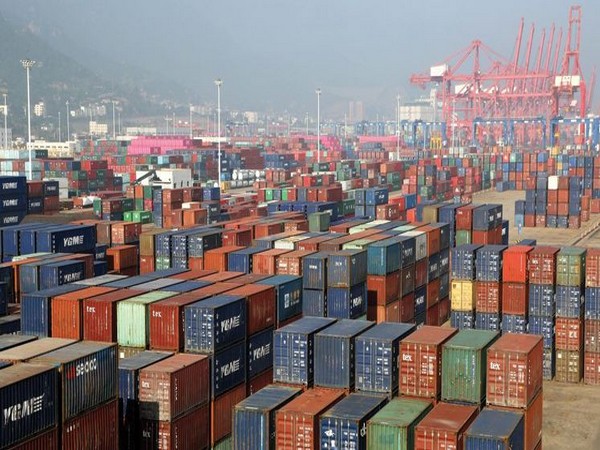
Kabul [Afghanistan], March 4 (ANI): Pakistan‘s economic collapse has impacted the trade between Kabul and Islamabad, the Afghanistan Chamber of Commerce and Investment (ACCI) said, Afghanistan-based TOLO News reported. As per ACCI, the trade between Afghanistan and Pakistan reached close to USD 3 billion but has recently dropped.
A member of the ACCI, Khanjan Alokozai, as quoted by TOLO News, said: “Our trade has been becoming worse day by day. In addition to the impact of the Pakistan economy, the reduction in the value of Pakistani rupees has been affecting imports as well.”
According to economists, the economic crisis in Pakistan is not only affecting the life of Afghan refugees in Pakistan but will also have a negative impact on the economic conditions of the people inside Afghanistan.
A member of the Chamber of Commerce and Investment of Nangarhar, Zalmay Azimi, said: “The export of Pakistan to Afghanistan has dropped. The reason is that Pakistan is in an economic crisis, and the prices of gas and oil have tripled. The truth is that Afghanistan also faces problems due to the economic crisis in Pakistan.”
An economist, Abdul Naseer Rishtia, as quoted by TOLO News, said: “Pakistan is one of the trade partners of Afghanistan… Whenever there is an economic crisis in Pakistan and the people lose the capacity to afford things, we cannot have exports to that country.” Pakistan‘s economic crisis has affected the value of Pakistani rupees, according to the Pakistani media.
The prices have also increased in Pakistan.
The Pakistan Bureau of Statistics said on Wednesday said that, monthly inflation, measured by a basket of products called the Consumer Price Index (CPI), jumped to 31.6 per cent in February year-on-year.
Last month, prices rose at the fastest pace ever in the country’s history, according to available data, with food, beverage and transport costs driving inflation to a point where analysts fear “families will have to make choices and sacrifices,” reported the Dawn.
This was the highest annual rate since available data, i.e. July 1965, according to the research firm Arif Habib Ltd, and is also expected to rise even further in the coming months.
Inflation surpassed 30 pc last month after having stayed above 20 pc for eight months from June to January. Inflation was 12.2 pc in February last year, reported Dawn.
Costs in four categories, transport, food and non-alcoholic beverages, alcoholic beverages and tobacco, and recreation and culture, jumped by around half.
Prices in February rose 4.3 per cent compared to January, the highest rate since October’s 4.7 per cent. Moreover, Pak Government is undertaking belt-tightening, aims to increase revenues through taxes, and has allowed the rupee to depreciate as it thrashes out a deal with the International Monetary Fund (IMF) to secure more than USD 1 billion in funding, reported Dawn. (ANI)






